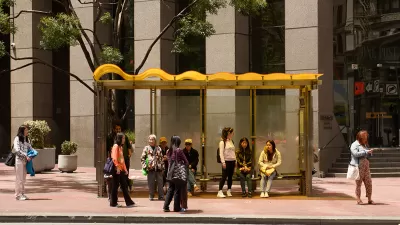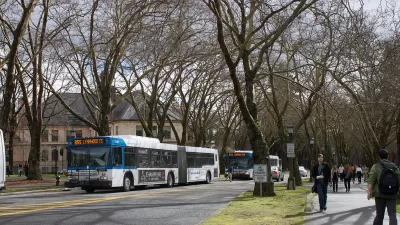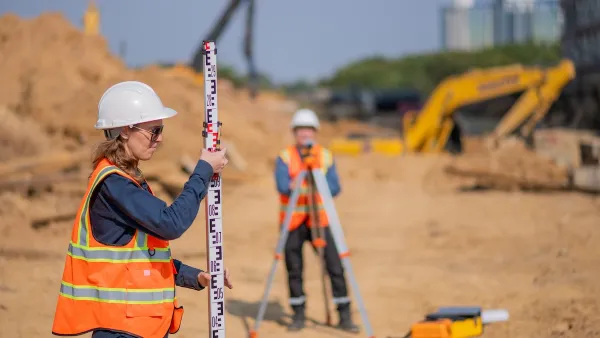A new study finds that Wisconsin spends big on highways and urban transportation while rural areas face gaps in service.

A new study on transportation equity in Wisconsin finds that public transit service is uneven throughout the state and underfunded overall. Authored by a coalition of non-profits, the study also notes that seniors, disabled residents, and low-income communities are most impacted by a lack of service.
In Urban Milwaukee, Mary Kate McCoy reports that one axis of the divide is rural versus urban spending: Demand for transportation options is increasing in rural areas with aging populations, but service to those areas is not. By contrast, Downtown Milwaukee recently opened a $128 million streetcar in hopes of spurring development and tourism.
But just as importantly, the report found that public transportation spending overall pales in comparison to spending on highways and auto infrastructure:
"In 2015, $1.7 billion out of the $3.1 billion transportation infrastructure spending was on state highways, the report says. At $144.5 million, state funding for public transit made up less than 5 percent of that total budget … Between 2000 and 2015, funding for new highway construction went up by 67 percent, while during the same period, local transportation funding increased by only 1 percent, according to the report."
FULL STORY: Study Finds Public Transportation Inequities

Planetizen Federal Action Tracker
A weekly monitor of how Trump’s orders and actions are impacting planners and planning in America.

Maui's Vacation Rental Debate Turns Ugly
Verbal attacks, misinformation campaigns and fistfights plague a high-stakes debate to convert thousands of vacation rentals into long-term housing.

Restaurant Patios Were a Pandemic Win — Why Were They so Hard to Keep?
Social distancing requirements and changes in travel patterns prompted cities to pilot new uses for street and sidewalk space. Then it got complicated.

In California Battle of Housing vs. Environment, Housing Just Won
A new state law significantly limits the power of CEQA, an environmental review law that served as a powerful tool for blocking new development.

Boulder Eliminates Parking Minimums Citywide
Officials estimate the cost of building a single underground parking space at up to $100,000.

Orange County, Florida Adopts Largest US “Sprawl Repair” Code
The ‘Orange Code’ seeks to rectify decades of sprawl-inducing, car-oriented development.
Urban Design for Planners 1: Software Tools
This six-course series explores essential urban design concepts using open source software and equips planners with the tools they need to participate fully in the urban design process.
Planning for Universal Design
Learn the tools for implementing Universal Design in planning regulations.
Heyer Gruel & Associates PA
JM Goldson LLC
Custer County Colorado
City of Camden Redevelopment Agency
City of Astoria
Transportation Research & Education Center (TREC) at Portland State University
Jefferson Parish Government
Camden Redevelopment Agency
City of Claremont





























